AstraZeneca vaccine is protective against UK coronavirus variant, according to Oxford researchers
America’s coronavirus death toll has surged past 450,000 as the UK struck a vaccine deal to combat the fast-spreading mutant strains.
Coronavirus
Don't miss out on the headlines from Coronavirus. Followed categories will be added to My News.
US virus deaths have passed 455,000 with the daily toll still alarmingly high at 3000 per day even with the vaccination rollout in massive venues such as Yankee Stadium in New York.
Despite its world-class medical system and the Centres for Disease Control and Prevention, the US is lagging behind in the race to detect and trace the highly contagious coronavirus mutations.
Scientists blame an absence of national leadership, logistical co-ordination, and a lack of funding for laboratories trying to study the mutations.
The US Senate passed a budget resolution on Friday, local time, that will allow Democrats to pass President Joe Biden’s $1.9 trillion ($A2.49tn) pandemic relief package without Republican support.
Vice President Kamala Harris cast the tie-breaking vote to make it 51-50 in the early morning showdown, concluding a process known as a “vote-a-rama” in which senators addressed dozens of amendments to the resolution.
Some drew support from both parties, such as an amendment seeking to bar high income Americans from receiving $1400 COVID-19 ($A1840) relief checks.
Mr Biden has reached out to Republicans on the COVID relief package but warned that he is willing to act without them, saying the government must act with urgency as the pandemic continues to strangle the economy and has caused a death toll of more than 450,000.
‘EFFICIENT’ VARIANTS COULD DOMINATE
The highly-contagious UK coronavirus variant may become dominant in the US because it’s more easily spread, said Dr. Anthony Fauci.
“It seems to be very efficient in spreading from person to person,” the director of the National Institute for Allergy and Infectious Disease told CNN.
Dr Fauci noted that recent studies show that the variants could be more deadly and cause more severe illness.
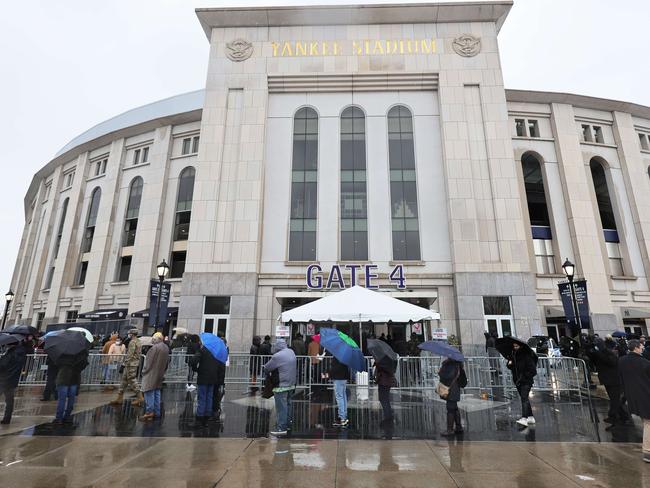
There have been at least 618 variant cases across 33 states so far, according the US Centres for Disease Control and Prevention.
The virus mutations, first detected in the United Kingdom (B.1.1.7), South Africa (B.1.351) and Brazil (P.1), could mean another surge in cases and deaths even as the vaccines are rolled out.
A federal distribution program aims to help pharmacies administer about 100 million vaccine doses a month at thousands of locations, with delivery of about 1 million doses starting next Thursday.
Meanwhile, the FDA will meet on 26 February to discuss Johnson & Johnson’s request for emergency use authorisation of its COVID-19 vaccine, which can be stored at refrigerator temperatures and requires just one dose.
It comes as experts warn the US could see 630,000 COVID-19 deaths by June 1.
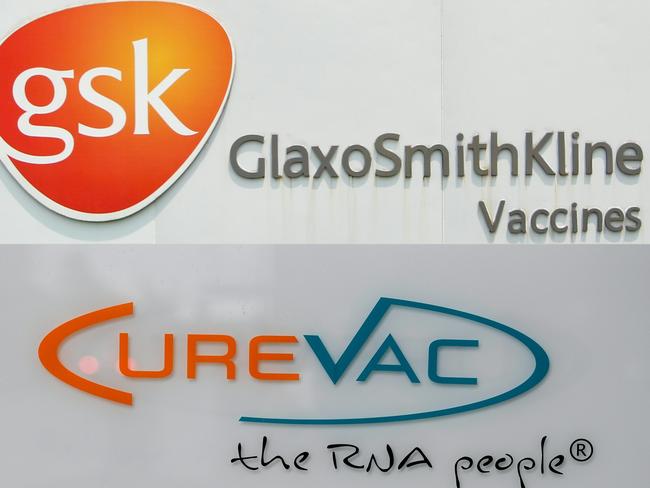
UK SEALS DEAL FOR VARIANT VACCINES
German biotech firm CureVac said on Friday it has struck a deal with the UK government to develop and manufacture potential vaccines against COVID-19 variants.
The company will work with the government’s Vaccines Taskforce to assess virus variants and generate vaccine candidates against those selected, it said in a statement.
Clinical studies will then be held in the UK in order to win approval for selected vaccine candidates against the most threatening variants.
“Under this agreement, CureVac is expected to supply 50 million doses of variant vaccines to the UK, subject to regulatory approval,” the company said.
“Any resulting vaccine candidates will be manufactured and distributed in the UK and its overseas and dependent territories,” it added.
CureVac and British pharmaceutical group GlaxoSmithKline had on Wednesday announced plans to jointly develop vaccines with the potential to counter multiple variants of COVID-19.
The collaboration is to develop vaccines “with the potential for a multivalent approach to address multiple emerging variants in one vaccine”, with rollout expected from 2022, the companies said.
CureVac’s existing COVID-19 vaccine candidate, based on experimental “messenger RNA” (mRNA) technology, is currently in late-stage clinical trials.
The company has hailed the jab as easier to store and mass distribute than those already being used in Britain and Europe.
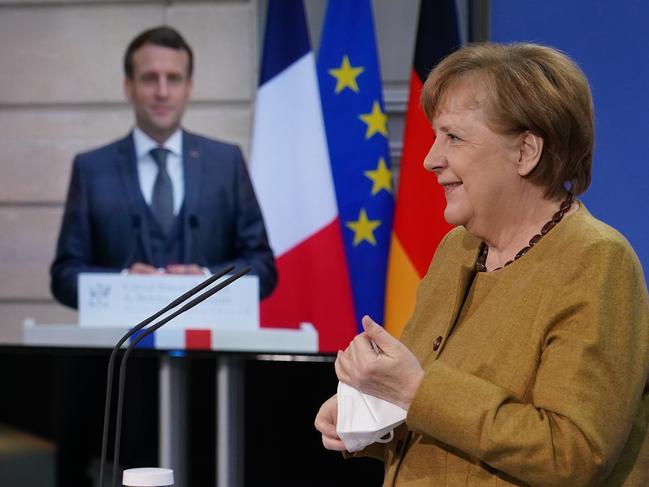
MERKEL, MACRON DEFLECT ANGER, DEFEND EU VACCINE PLAN
German Chancellor Angela Merkel and French President Emmanuel Macron on Friday defended the European Union’s joint COVID-19 vaccination rollout despite its troubled start.
“I fully support the European approach,” Mr Macron told an online news conference after talks with Ms Merkel. “What would people say if countries like France and Germany were competing with each other on vaccines?”
“It would be a mess, and counter-productive,” he said.
Ms Merkel said that although the sluggish rollout had shown that the bloc needed to ramp up pharmaceutical production capacities, “the basic decision to order together as the European Union was and is right”.
Anger in the 27-member bloc has grown in recent weeks over the slow pace of coronavirus inoculations compared with the speedier campaigns seen in the United States, Israel and ex-EU member Britain.
Ms Merkel has taken to the airwaves several times this week to defend Germany’s decision not to go it alone.
She said the EU and vaccine makers were “working as fast as possible” to accelerate vaccinations and expand production lines.
The EU has ordered more than enough potential vaccines for its 450 million citizens, she said, but the initial shortages have laid bare that the bloc’s “production capacities are not as large as we had imagined”.
Mr Macron said that the bloc had secured doses from a wide range of vaccine candidates, but admitted that leaders had been caught off guard by the swift success of experimental mRNA vaccines.
The jabs, based on novel technology never before used in a commercial vaccine, were developed by Pfizer/BioNTech and Moderna and became the first two shots to be approved by EU regulators in the fight against the pandemic.
“Nobody could have known that we were going to have safe vaccines so quickly,” Mr Macron told reporters.
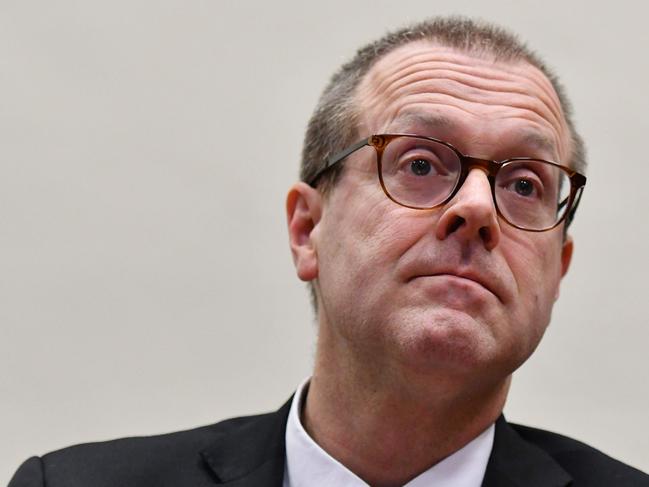
WHO URGES BIG PHARMA UNITY TO SPEED VACCINES
A World Health Organisation chief appealed on Friday for European nations and Big Pharma to unite in the struggle to accelerate coronavirus inoculations.
Pressure is growing not only on wealthy nations to speed up their sluggish rollouts, but also for a more equitable allocation of precious vaccine supplies to poorer countries, in a push to end a pandemic that has claimed close to 2.3 million lives.
Supply shortages and diplomatic bickering have marred the vaccine rollouts in Europe, where just 2.5 per cent of the population has received a first dose, with the production capacity at pharmaceutical plants a source of tension between the firms and EU bosses.
“We need to join up to speed up vaccinations,” WHO Europe director Hans Kluge told AFP in an interview.
“Otherwise competing pharmaceutical companies (must) join efforts to drastically increase production capacity … that’s what we need.”
Mr Kluge reiterated the WHO’s call for rich countries to help poorer parts of the world, urging them to donate spare doses after inoculating the most vulnerable parts of their populations.
“We know that in the EU, Canada, UK, US, they all ordered and made deals for four to nine times more doses than they need,” he said.
“So my point here is: don’t wait until you have 70 per cent of the population (vaccinated) to share with the Balkans, to share with central Asia, Africa.” The Red Cross has launched a campaign to get 500 million doses to poorer countries, with its chief warning unequal distribution could “prolong or even worsen this terrible pandemic”.
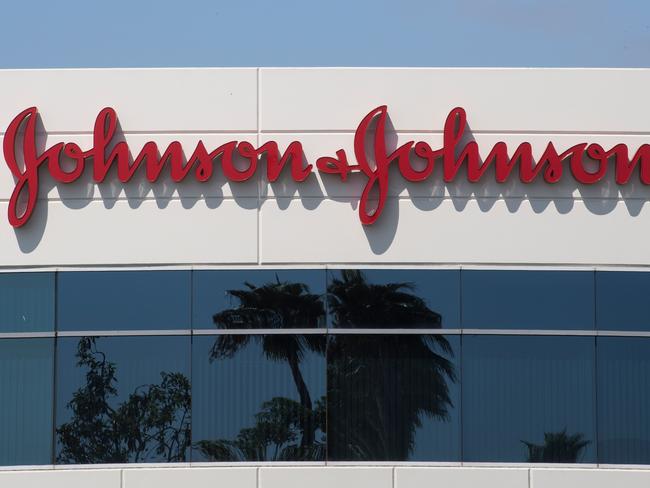
It comes as pharma giant Johnson & Johnson asked US regulators on Thursday for emergency authorisation of its vaccine, which offers logistical advantages compared to the already approved Pfizer-BioNTech and Moderna shots because it does not require two doses or super-cold storage.
J & J has said it is on track to supply 100 million doses to the United States if authorised, a major vaccine supply boost to the hardest-hit nation in the world.
But trials have shown the J & J vaccine does not protect as well against a highly transmissible variant first identified in South Africa that is rapidly spreading around the world.
EU: SPUTNIK JAB IS ‘GOOD NEWS FOR MANKIND’
The European Union’s foreign policy chief Josep Borrell on Friday hailed the success of Russia’s Sputnik V coronavirus vaccine, and said he hoped it could be certified for use in the bloc.
Mr Borrell was in Moscow for talks with Russian Foreign Minister Sergei Lavrov on what was the first visit of a senior EU envoy to Russia since 2017.
“It’s good news for the whole of mankind because it means we will have more tools to fight the pandemic,” Mr Borrell told journalists after the talks.
He said he hoped the European Medicines Agency (EMA) would certify the jab for use in EU member states.
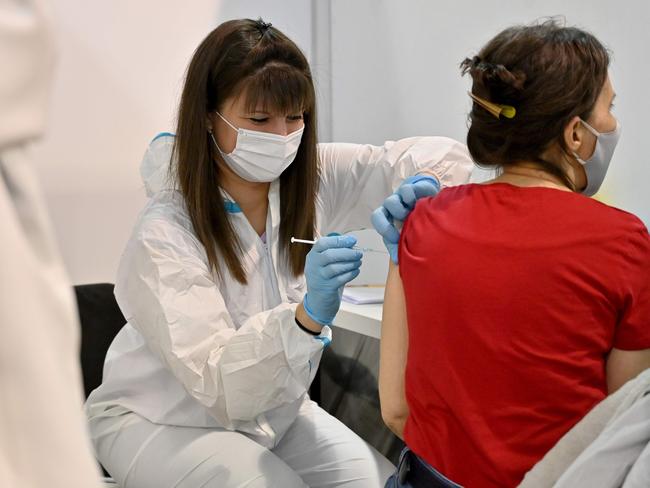
Mr Lavrov said Washington and Moscow had agreed to “see if there is room for acting together” on vaccines and that several European countries were “interested in producing the vaccine on their territory”.
Russia’s domestically produced Sputnik V was approved for use last August ahead of large-scale clinical trials, sparking concern over the fast-track procedure.
Despite widespread criticism, the vaccine’s developers said the jab was over 90 per cent effective and Russia started inoculating its citizens in December.
Earlier this week, the Lancet medical journal published results of Sputnik’s third phase trials with data from more than 20,000 volunteers, confirming the vaccine’s safety and efficacy.
Sputnik has been approved in more than 15 countries, including several ex-Soviet states, Argentina, Iran and Pakistan.
The Russian Direct Investment Fund (RDIF), which financed the vaccine, said in January that it had applied for registration of the jab in the European Union.
Many European nations struggle with rolling out their vaccination campaigns, and both Germany and Spain said they were open to accepting deliveries of the vaccine while Hungary registered the jab on its own.
According to Sputnik’s developers, the jab has been administered to over two million people worldwide.
CLIMATE CHANGE ‘PLAYED KEY ROLE’ IN PANDEMIC
Climate change may have played a “key role” in the transmission of the novel coronavirus to humans by driving several species of pathogen-carrying bats into closer contact, research showed on Friday.
Researchers from the University of Cambridge used temperature and rainfall data over the last 100 years to model populations of dozens of bat species based on their habitat requirements.
They found that over the last century, 40 species had relocated to southern China, Laos and Myanmar — the area where genetic analysis suggests the virus known as SARS-CoV-2 first appeared.
Since each bat species carries an average of 2.7 coronaviruses, the researchers said 100 strains of coronavirus were now concentrated in this “hotspot” area.
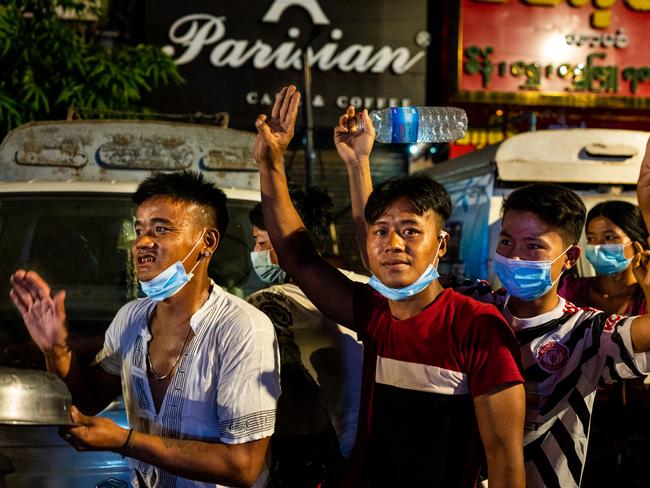
“Our paper is a long way away from saying the pandemic would not have happened without climate change,” lead author Robert Meyer of Cambridge’s zoology department told AFP.
“But I find it difficult to see that this climate-driven increase in bats and bat-borne coronaviruses make something like this less likely to happen.”
While the precise chain of SARS-CoV-2 transmission from animals to humans is yet to be determined, Meyer said the changing climate and habitat destruction in Asia had driven virus-carrying species into ever closer contact with human populations.
“It’s two sides of a similar coin: we penetrate deeper into their habitat but at the same time climate change can have the effect that it pushes the pathogen in our direction,” he said.
The study, published in the journal Science of the Total Environment, urged governments to take measures including limiting urban expansion and farming, which it said would help to manage the risk of another pandemic of a disease endemic in wild animals.
“The fact that climate change can accelerate the transmission of wildlife pathogens to humans should be an urgent wake-up call to reduce global emissions,” said Camilo Mora at the University of Hawaii, who contributed to the research.
COUNTRIES REJECT ASTRAZENECA JAB
Norwegian and Danish health authorities have announced they will limit use of AstraZeneca’s COVID-19 vaccine to those under age 65, citing a lack of data on its efficacy for the elderly.
The two Nordic nations followed in the footsteps of several others in the European Union, of which Norway is not a member but to which it is closely linked, including for the procurement of COVID vaccines negotiated by Brussels.
The head of Norway’s public health agency FHI, Camilla Stoltenberg, told reporters the decision was made “not because the vaccine doesn’t work for the elderly, but because the documentation is so limited”.
“We have reviewed the documentation, and until we have seen more data on efficacy among the elderly, it is our recommendation that the vaccine from AstraZeneca should first and foremost be an offer for people under 65,” added Bolette Søborg from Denmark’s National Board of Health said in a statement.
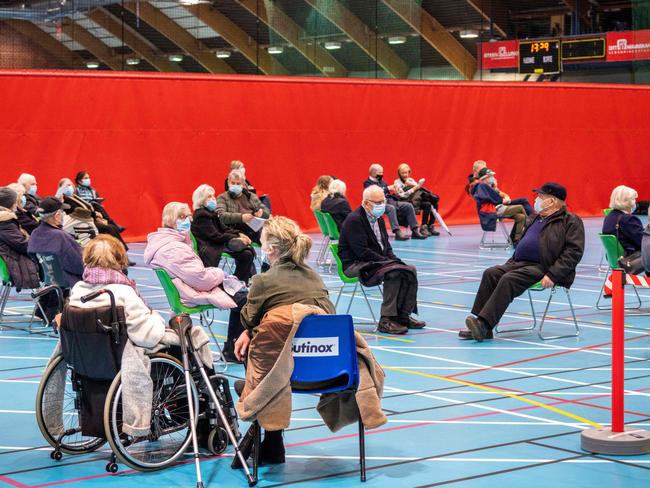
Health authorities in Germany, France and Sweden have also recommended the jab only be used on under-65s.
In Norway and Denmark, exemptions will also be made for under-65s with underlying health conditions and at risk of developing severe cases of COVID-19. They will continue to receive the vaccines made by Pfizer/BioNTech and Moderna.
For others who will receive the AstraZeneca inoculation, the two doses will be administered between nine and 12 weeks apart in Norway, and four to 12 weeks apart in Denmark.
“We see that a longer interval between the doses provides better protection,” said Sara Watle, a doctor at Norway’s FHI.
Norway, a country of 5.4 million, has one of Europe’s lowest Covid incidence rates, according to EU disease agency ECDC.
So far, at least 135,000 people in Norway have received a first vaccine dose and more than 30,000 a second dose, and the country hopes to have vaccinated most of its adult population by summer.
In Denmark, the EU country with the second-highest vaccination rate after Malta, 1.68 per cent of its 5.8 million inhabitants have received two doses and 3.28 per cent have received a first dose. The country hopes to have vaccinated all adults by July 4.
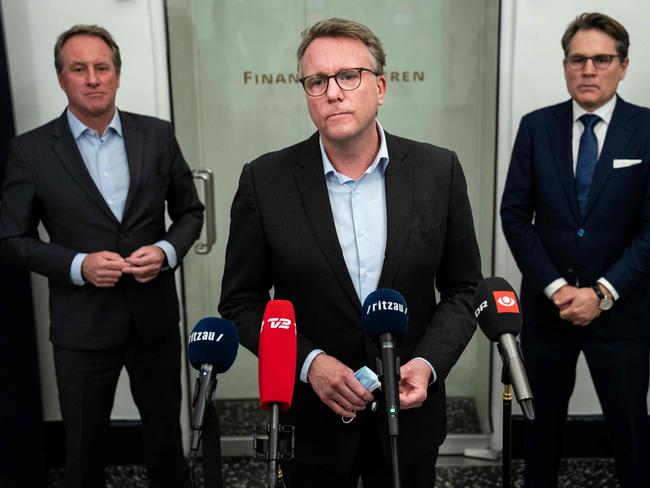
CORONA PASSPORT
Denmark has also become one of the first countries to set out plans for a “corona passport” to allow people who have been vaccinated to travel abroad.
Over the next three to four months an app will be released, subject to approval from the country’s public health agency, that people can show at passport control to confirm that they have been immunised.
The scheme is mainly intended to open up business travel, but many hope that it will also permit bars, restaurants and music festivals to resume.
Morten Bodskov, the acting finance minister, said: “It’s about finding the right technological solution so that we can get opportunities in cultural life and Danish society, and so that those who have to travel, for example on business, will also have a chance to do so.”
The idea of issuing “immunity passes” to people who have overcome a coronavirus infection or received a vaccine has been debated since the early days of the pandemic.
Last month the World Health Organisation said that it was opposed to vaccine passports “for the time being”.
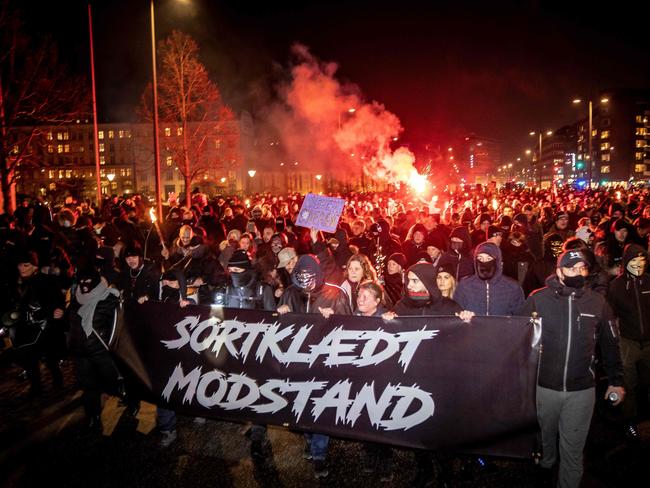
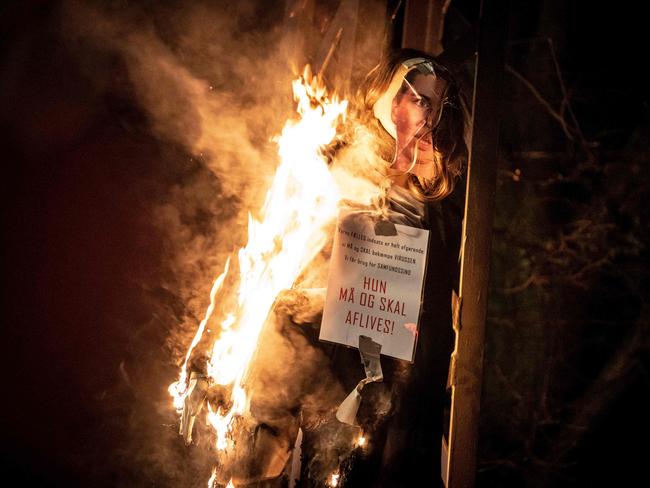
It comes as Swiss regulators said that data submitted by AstraZeneca was not sufficient for it to authorise use of the Anglo-Swedish firm’s COVID-19 vaccine and “new studies” were needed.
The Swissmedic regulatory authority said it had been examining information from AstraZeneca but that was “not yet sufficient to permit authorisation”.
“To obtain more information about safety, efficacy and quality, additional data from new studies are needed,” it said in a statement.
Switzerland has given the green light to COVID-19 vaccines made by Pfizer-BioNTech and Moderna.
It had been expected to authorise the AstraZeneca jab soon, after the neighbouring European Union last week gave the vaccine the go ahead.
But while the EU granted approval for use in all people over the age of 18, several European countries have advised against giving the jabs to people over 65, citing lack of evidence that it was effective among the elderly.
Swissmedic said a meeting of its external advisory body on Tuesday had confirmed its interim assessment of the AstraZeneca vaccine data.
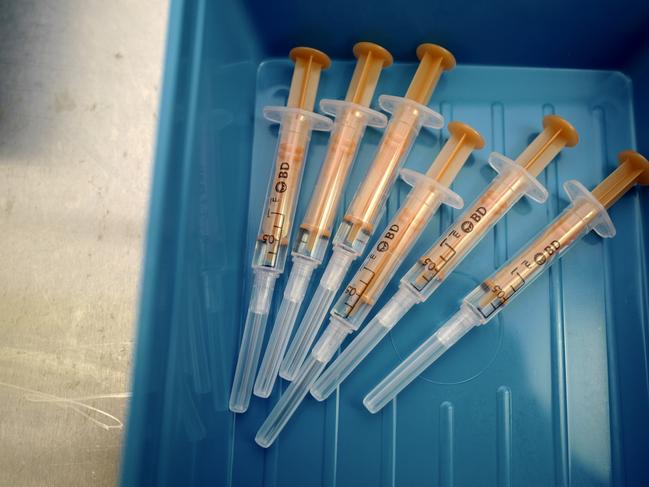
“The data currently available do not point to a positive decision regarding benefits and risks,” it said.
“To obtain a conclusive assessment, the applicant will among other things have to submit additional efficacy data from a Phase 3 trial under way in North and South America, and these will have to be analysed.
“As soon as the results have been received, a temporary authorisation according to the rolling procedure could be issued at very short notice,” it added.
‘QUASI-INEFFECTIVE’
Although the European Medicines Agency recommended the AstraZeneca jab for adults of all ages last week, several countries have advised against administering it to older people.
Germany has said it will not advise over 65s to get it, Italy also recommended alternatives for people aged over 55 and Poland has authorised its use for under-60s only.
In France, where President Emmanuel Macron said last week that the AstraZeneca jab was “quasi-ineffective,” a lab will start producing a rival vaccine by US firm Moderna.
And another French lab will begin making the Pfizer-BioNTech vaccine in April, said Industry Minister Agnes Pannier-Runacher.
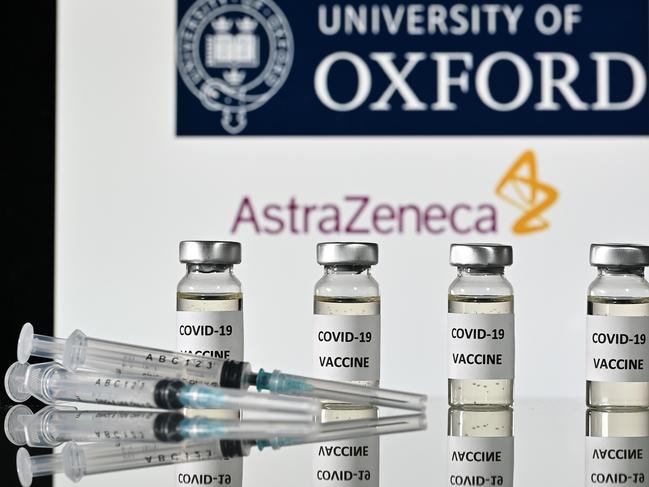
Mr Macron pledged earlier this week that four French sites would begin making vaccines soon, as the government drew sharp criticism over an inoculation drive that has started slowly.
French pride has also taken a hit after its pharma giant Sanofi said its COVID vaccine would not be ready until later this year.
Further adding to global supply, China said it plans to provide 10 million doses of COVID-19 jabs to the WHO-backed international vaccine distribution program Covax.
WHO HAS ‘VERY FRANK’ TALKS WITH CHINA
World Health Organisation inspectors had “very frank” discussions with Chinese scientists about the source of the pandemic, including theories it leaked from a laboratory, the head of the probe in Wuhan told AFP on Thursday, local time.
The talks covered famous claims widely reported in global media, Peter Ben Embarek said in an interview a day after he and his WHO team visited the lab.
While he did not identify specific theories, Mr Ben Embarek described some of them as irrational and insisted the investigators would not waste time chasing the wildest claims.
“The discussions were very frank,” the food safety scientist with the UN health agency said by telephone from Wuhan.
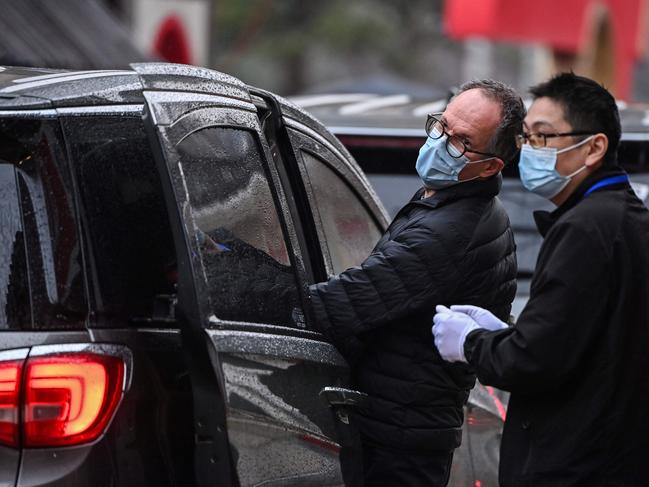
Ben Embarak was based in the WHO’s Beijing office for two years from 2009.
Since emerging from a 14-day hotel quarantine last week, the WHO experts have visited a number of high-profile sites linked to the pandemic origins, including a seafood market where people were first found falling ill.
The trip to the Wuhan Institute of Virology was one of the highest-profile events on the agenda because of the controversial theory it was the source of the pandemic.
Scientists at the laboratory conduct research on some of the world’s most dangerous diseases, including strains of bat coronaviruses similar to COVID-19.
Mr Ben Embarek said discussions at the lab were useful to understand the staff’s position “in regards to many of these statements and claims that everyone has seen and read about in the news”.
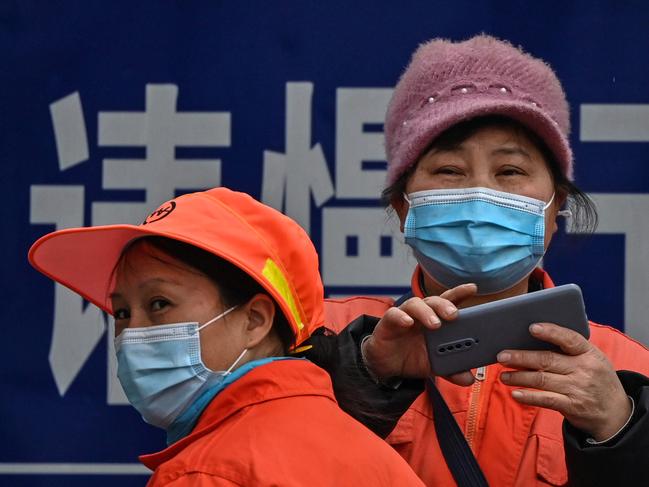
He appeared to dismiss some of the theories, calling much of the speculation “excellent scenarios for good movies and series for the years to come”.
He also emphasised the WHO investigators would “follow science and we follow facts” in reaching their conclusions.
“If we start following and chasing ghosts here and there, we’ll never move anywhere,” he told reporters.
“So that’s also an important step that we were also able to understand where these stories are coming from.
“And we are able to, in a rational way … explain why some of them are totally irrational, why some of them could make sense, and why some of them can be explained or not explained,” he said.
The team visited the institute’s P4 lab — Asia’s first maximum-security lab equipped to handle Class 4 pathogens such as ebola.
Mr Ben Embarek said the trip to Wuhan, which is due to conclude within the next week, would not lead to a final conclusion on how the virus jumped from animals to humans.
“We’re not going to come up with the ultimate full understanding of the origins of this virus, but it will be a good first step,” he said.
“It will be a very robust and clear best way we will lay for how to move forward.”
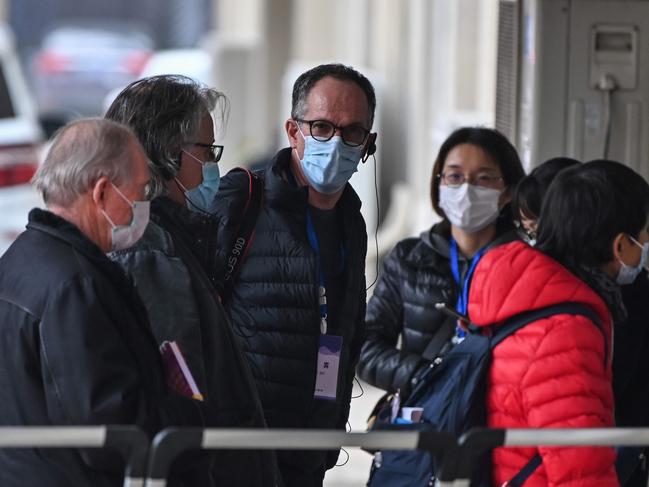
‘HURRICANE’ OF 4,000 COVID-19 VARIANTS
Meanwhile, epidemiologist Michael Osterholm compared a UK coronavirus variant to a “Category 5 hurricane” churning off the coast, saying some strains could cause a “major surge” in new cases in the US.
“It’s going to take much more than vaccine to keep this variant at bay and not to have potentially a major surge in just the weeks ahead,” Mr Osterholm, director of the Center for Infectious Disease Research and Policy at the University of Minnesota told CNN
A mutation that could allow COVID-19 to escape antibody protection has now been found in samples of a rapidly spreading strain in the UK, according to a report.
“I think among my colleagues, they would agree that this variant from the United Kingdom, which is now beginning to circulate much more widely in the United States, poses a huge challenge to us. And that in just a few weeks, we could be seeing case numbers increase very dramatically,” Mr Osterholm told CNN.
There are approximately 4,000 variants of COVID-19 in the world right now, according to the UK’s vaccine minister Nadhim Zahawi.
Speaking to Sky News on Thursday, local time, Mr Zahawi said Pfizer, BioNTech, Moderna, AstraZeneca and “others” are trying to bolster their vaccines “to make sure we are ready for any variant.”
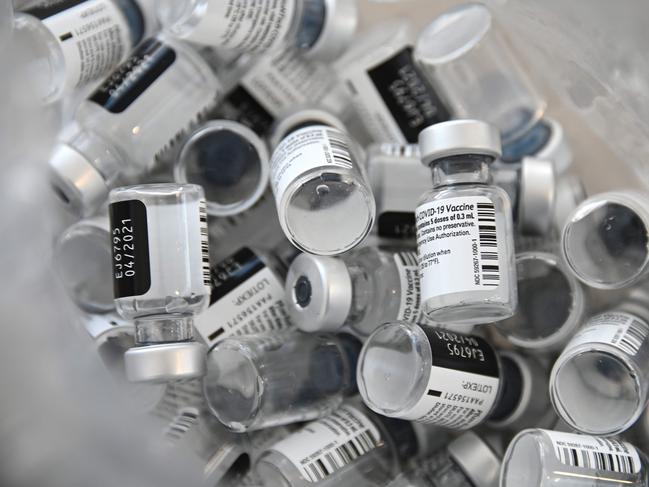
“There are about 4,000 variants around the world of COVID now. We have the largest genome sequencing industry – we have about 50 per cent of the world’s genome sequencing industry – and we are keeping a library of all the variants so that we are ready to be able to respond, whether in the autumn or beyond, to any challenge the virus may present, and produce the next vaccine so we can always protect the United Kingdom and of course offer it to the rest of the world as well,” he said.
Thousands of variants have been documented as the virus mutates, including the so-called British, South African and Brazilian variants, which appear to be more contagious.
But the vaccine minister still has faith in the existent vaccines.
“Its very unlikely that the current vaccine won’t be effective on the variants whether in Kent or other variants especially when it comes to severe illness and hospitalisation,” Mr Zahawi told Sky News.
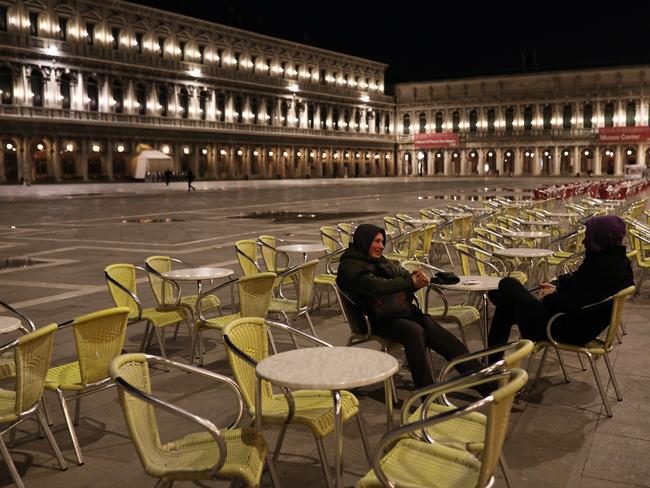
OUTBREAK OF UK VARIANT IN ITALY
Health experts warned on Thursday, local time, of new coronavirus variants beginning to circulate in Italy, as authorities pinpointed an outbreak of a UK strain in a northern town.
The town of Corzano in the Lombardy region has been swabbing close contacts of students and teachers in a school where 24 people tested positive for COVID-19 last month.
After 139 people were found positive out of 189 tested, health authorities in the province of Brescia decided to sequence the samples, which identified the British strain of the virus.
There were 14 positives for the British variant, the Brescia health agency wrote in a statement on Thursday.
Italy was the first European country to be hit by coronavirus a year ago and so far 90,000 people with COVID-19 have died.
Independent health think tank GIMBE President Nino Cartabellotta said the country was undergoing “one of the most critical phases of the pandemic”.
He noted the slowdown of the vaccination program that began in late December, following delays in the delivery of doses, and “the first signs of increased circulation of the virus, undoubtedly underestimated”.
“But above all looms the threat of new variants, already landed in Italy, which risk increasing the contagion curve,” Mr Cartabellotta added.
Italy’s health ministry confirmed the country’s first case of the UK variant on December 20, in a patient recently returned from Britain.
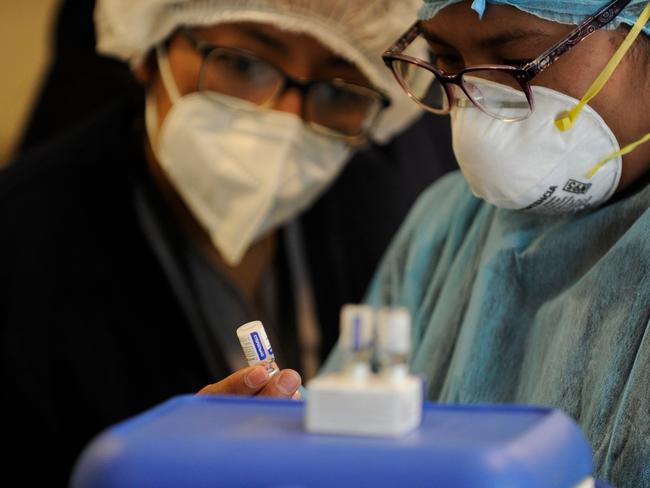
RED CROSS, COVAX HELP STRUGGLING NATIONS
The International Federation of Red Cross (IFRC) and Red Crescent Societies has launched a plan to get 500 million people vaccinated, saying that leaving the world’s poorest exposed to the virus could backfire on wealthier nations.
The IFRC is already working with governments in more than 60 countries to see where its help could be the most effective.
“The current lack of equity in the rollout of COVID-19 vaccines is alarming and could backfire to deadly and devastating effect,” IFRC secretary-general Jagan Chapagain told reporters.
He said nearly 70 per cent of vaccine doses administered so far had been in the world’s 50 richest countries while only 0.1 per cent had been deployed in the poorest 50.
“It could prolong or even worsen this terrible pandemic,” Mr Chapagain said, noting that if the virus continued to circulate and mutate in large areas of the globe, even those who have been vaccinated in wealthier countries would not be safe.
He called for richer countries to share vaccines once they had immunised their most vulnerable populations.
Otherwise, “the emergence of variants in faraway low-income countries will shatter the illusion of safety in wealthier countries,” said Mr Chapagain.
“We are all rowing the same boat. We cannot sacrifice those at highest risk in some countries so that those at lowest risk can be vaccinated in others,” he added.
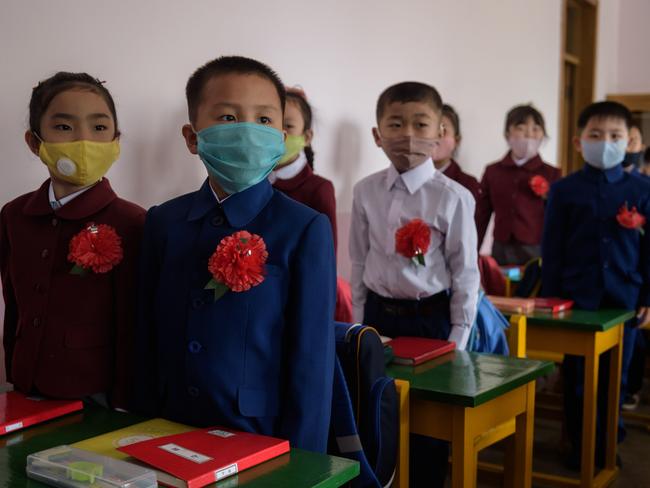
It comes as North Korea has requests vaccines through the COVAX program for struggling nations and is expected to receive nearly two million doses — even though the isolated country has insisted it is virus-free.
COVAX is co-led by Gavi, the Coalition for Epidemic Preparedness Innovations (CEPI) and WHO. Its aim is to accelerate the development and manufacture of COVID-19 vaccines, and to guarantee fair and equitable access for every country in the world.
The COVAX initiative for equitable global access to COVID-19 vaccines announced its plan to distribute more than 330 million doses to developing nations in the first half of 2021.
In an interim distribution plan, the COVAX vaccine-sharing facility said the doses will cover an average of 3.3 per cent of the total population of the 145 countries participating in the initial round of distribution.
More Coverage
Originally published as AstraZeneca vaccine is protective against UK coronavirus variant, according to Oxford researchers




